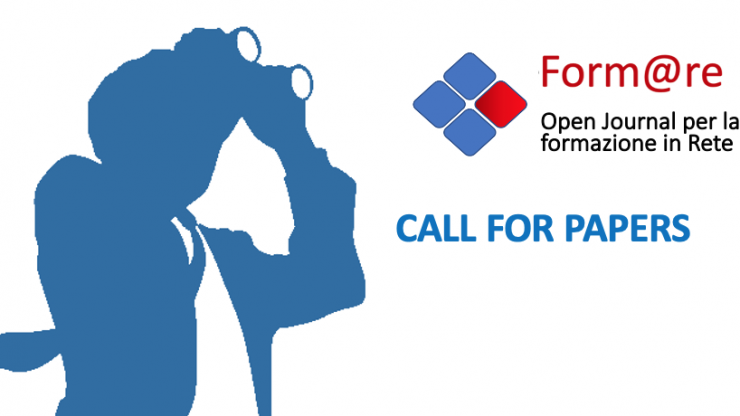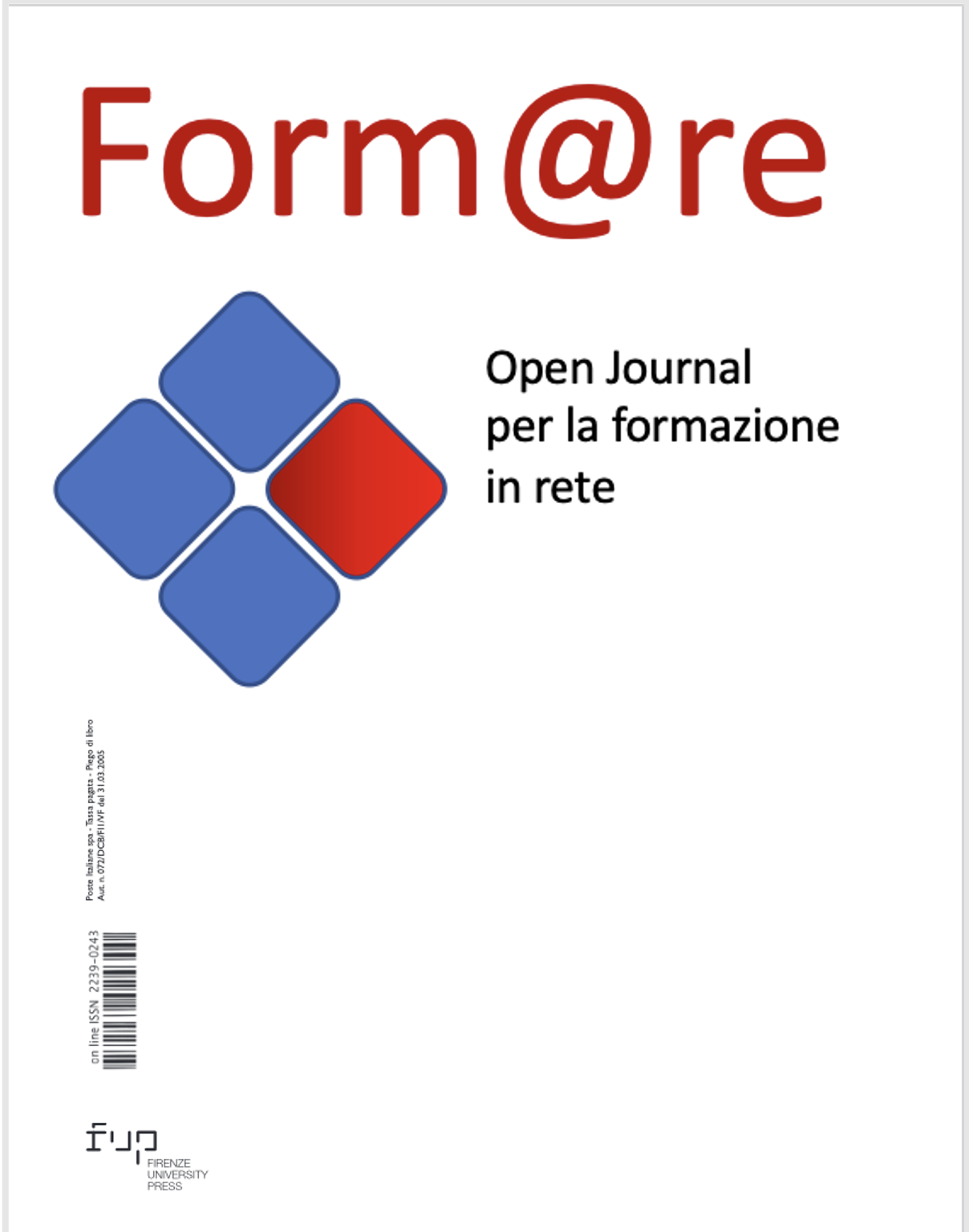CALL FOR PAPERS: Form@re Journal wants to provide its own tools and organisation in order to collect in one Dossier the existing know-how on Covid-19 management. We propose Researchers to produce a Dossier where they can collect all kinds of contributions dealing with the Covid-19 management from different perspectives and disciplines
Form@re Journal – Open journal for Networked Learning wants to provide its own tools and organisation in order to collect in one Dossier the existing know-how on Covid-19 management. We propose Researchers to produce a Dossier where they can collect all kinds of contributions dealing with the Covid-19 management from different perspectives and disciplines. The Dossier will be open from now until December 2020. It will guarantee the prompt publication of resources collected (texts, videos, slides). Resources will be organised for each of the items listed above. Moreover for each of them a research team will be set up in charge of validation and editing of each of the resources submitted.
Download full call for papers: ENGLISH ITALIAN
-
- In some months, hopefully few months, reconstruction in first instance and recovery as a second step will start worldwide.
- In the past several crisis and wars were followed by – often epochal – redefinition processes of conditions and ways of living of citizens.
- Replanning and redesign processes of life in our cities and territories is something both institutions and citizens are concerned about. Nonetheless in order to be successful and based on knowledgeable and illuminated decisions such processes have to be supported by research activities and findings.
- Pandemic showed that the main problems were caused by the lack of preparation of services as well as infrastructures of any kind, but also by the difficulties for citizens to understand what was happening around them and to adopt individual behaviours in workplaces, public spaces, services where they were leaving in.
- Financial incentives and emergency management can mitigate pain and instill hope. But it will not be enough in order to ensure a quick exit from economic and social recession and downturn.
- In order to take on reconstruction and then recovery a more reinforced management of both interdependency among all populations in the world and their life conditions is necessary. More specifically, decision makers as well as professionals will benefit from the set of knowledge and experiences that have been accumulated by the research as these will help them facing new challenges in diverse contexts they work and live in:
a. cities and local communities had to face the community engagement challenge and the diffusion of sustainable services and life styles. Cities and local communities are required to identify learning devices that can promote and disseminate the culture of economic and social recovery;
b. around cities and workplaces it will be necessary to develop levels of safety and security culture among citizens as well as among health workers;
c. within workplaces – including manufacturing and, much more challenging and complex, services – it will be necessary to deal with any kind of crisis that are connected to human resources management but also to the management and production of new knowledge about market and products by all kinds of workers as this is the knowledge that is needed to cope with recovery;
d. the justice system and in particular the penitentiary system needs to be revised in order to change its inconsistencies as emerged during the pandemic. Specifically, it showed not to be adequate to manage re-educational activities and pathways for inmates under security conditions both for penitentiary staff and citizens;
e. education and training systems will be no longer places of infection and disease but will become open systems where youngsters and adults are trained not only in classrooms;
f. communication systems and social networks showed their potentialities in terms of supporting dialogue but also persuading people, sustaining productive activities and monitoring by institutions. New challenges are related to privacy defense and the right of answer by the civil society;
g. new possibilities to access and use cultural consumptions were explored trying to overcome cultural barriers that isolate cultural infrastructures from the wide public;
h. networks among families, associations, friends showed to be key and crucial for educational survival of youngsters and adults. Reinforcement and increase of the quality of networks can be the most effective answer to the challenges for the future;
i. migrations management can represent the most complex challenge for the impact Covid-19 can have on migration flows and integration into the labour market where demand is and will be weak;
j. history of pandemic and the related lessons learnt can provide lessons for facing the future.
7. Form@re Journal – Open journal for Networked Learning wants to provide its own tools and organisation in order to collect in one Dossier the existing know-how on Covid-19 management. We propose Researchers to produce a Dossier where they can collect all kinds of contributions dealing with the Covid-19 management from different perspectives and disciplines. The Dossier will be open from now until December 2020. It will guarantee the prompt publication of resources collected (texts, videos, slides). Resources will be organised for each of the items listed above. Moreover for each of them a research team will be set up in charge of validation and editing of each of the resources submitted.
8. Researchers and Authors will be encouraged to publish the preprint version of their contributons (of any kind as stated above) under the dedicated section of the Form@re Journal web site. Thus resources will be shared and promoted quickly. The scientific review of the preprint versions will be ready shortly thanks to the Form@re Editorial Team that will provide Authors and Researchers with a prompt feedback before publication. Authors and Researchers will submit their contributions in the “DOSSIER” section of the online Journal. Digital platform will be the only way for publication: https://oaj.fupress.net/index.php/formare/about/submissions
9.Instructions will be available for everybody who is interested in submitting proposals for publication.
10.Every preprint documents will be assigned a DOI code and descriptive metadata as to make them immediately available and ready for download and quotation.
11.Once the Dossier will be closed, contributions that are published as preprint version will be reviewed once more (single blind review) and published in the final version. So preprint versions can be amended and updated until the publication of the whole Dossier. DOI code will not change until the final registration of the publication record.
12. Languages: contributions can be submitted in all languages and possibly in English, French, German, Italian, Portuguese, Spanish always equipped with an English abstract and keywords (no more than five).
Executive Committee:
Francesco De Maria (University of Firenze); Giovanna Del Gobbo (University of Firenze) Paolo Federighi (Director of the Form@re. Open Journal for Networked Learning Journal), Laura Menichetti (University of Firenze),Francesca Torlone (University of Siena)


